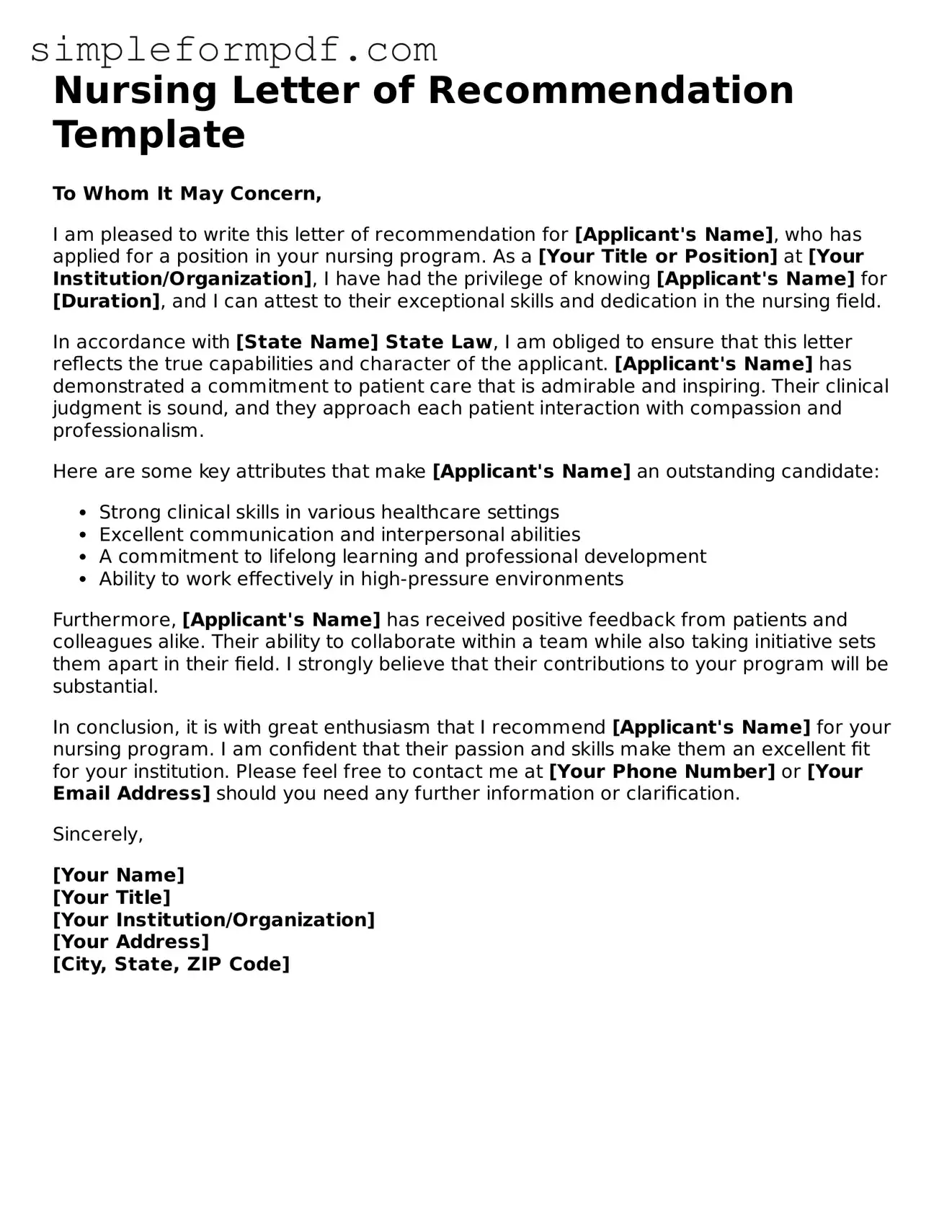Fillable Nursing Letter of Recommendation Template
The Nursing Letter of Recommendation form is a crucial document that supports a nursing candidate's application by providing insights into their skills, experience, and character from a professional perspective. This letter plays a significant role in helping prospective employers or educational institutions assess the applicant's qualifications. To ensure your application stands out, consider filling out the form by clicking the button below.
Launch Editor

Fillable Nursing Letter of Recommendation Template
Launch Editor
Need instant form completion?
Finish Nursing Letter of Recommendation online in just a few minutes.
Launch Editor
or
Download PDF
